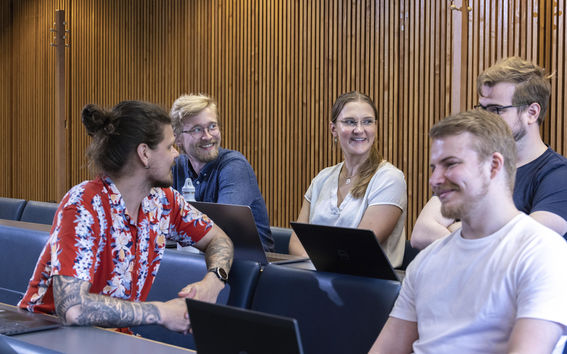The real estate development course of the Master's Programme in Real Estate Economics tackles its topic through a case study, which tasks teams of students with creating a realistic development plan for an old real estate. This year, the case in question was the shopping centre in Rajatorppa, Vantaa, and the development plan was created with the help of a new application.
'The new thing for this year's course was to give students access to a modern analytics platform. This was made possible by collaborating with CHAOS Architects, the firm behind the software', said Doctoral Candidate Antti Seppälä.
The idea of working with CHAOS started with a wish to introduce a modern, easy-to-use tool to students taking the real estate development course.
'The tool gave students an opportunity to use a broad data set while working on their case study, including local information on real estate markets, population, jobs, existing properties and services as well as transport connections. Data like this would be hard to collect from free sources, so the tool let students reinforce their analyses and proposals in the assignment with the relevant facts', Antti Seppälä continued.
In addition to a wide-ranging database, the CHAOS tool was also praised for its ease of use.
'CHAOS was easy to use and a good tool for analysing the real estate market. We used the application to familiarise ourselves with the target area and market of the project. The project required us to check the current status of the area, and the CHAOS tool helped us look up information on, for example, the amount of people living in the area as well as their distribution and educational background', commented Ida Ekman, a first-year student of the Master's Programme in Real Estate Economics.
'Using the map-based CHAOS tool is intuitive, which is part of the reason it has been adopted by companies in the field. This is why we believed the course would benefit from teaching students skills that will be applicable to their future careers', noted Antti Seppälä.










